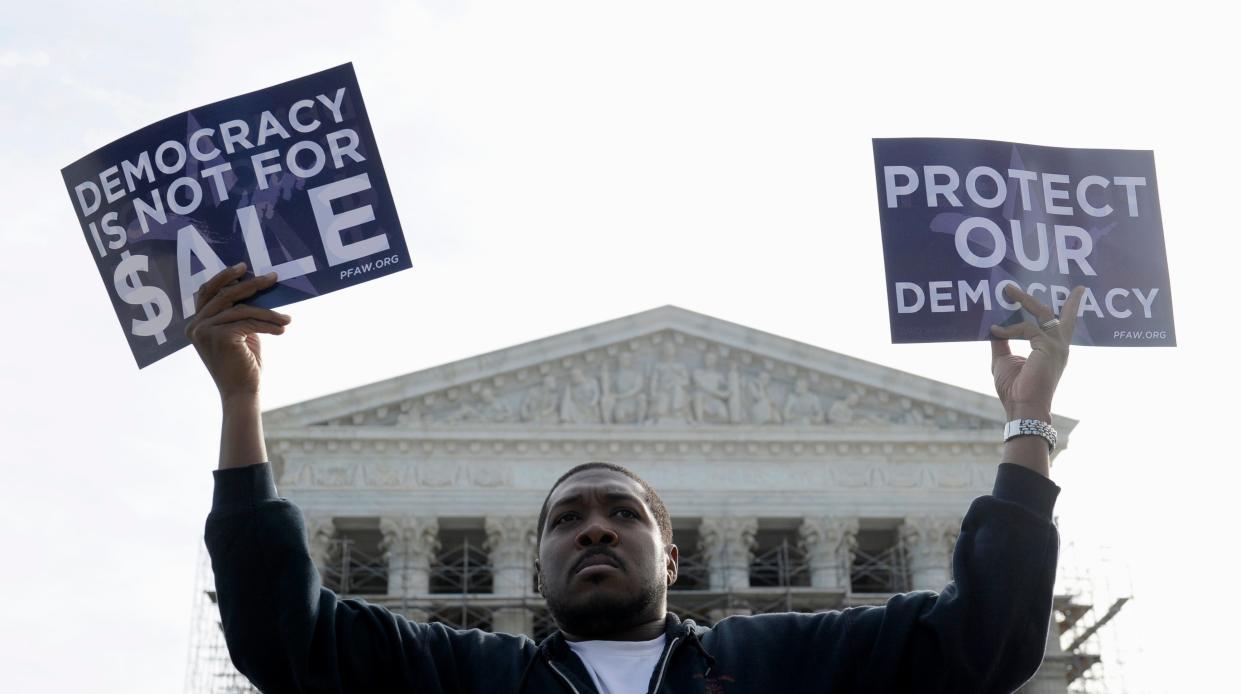Supreme Court re-enters debate on money in politics by vacating decision on Alaska contribution limits

WASHINGTON – The Supreme Court re-entered the national debate over the influence of money in politics Monday by vacating a lower court decision that upheld Alaska's low campaign contribution limits.
The justices sent the case back to the U.S. Court of Appeals for the 9th Circuit with instructions to consider if limiting donations to $500 annually is "consistent with our First Amendment precedents."
In doing so, the court cited several of its previous rulings upholding the rights of individuals, corporations and labor unions to spend more freely on elections. There were no apparent dissents.
Alaska sets a $500 annual limit on individual donations to candidates and non-political party groups. The court called that "the most restrictive in the country in this regard."
The limits are lower, after inflation, than the $600 limits the high court struck down in a Vermont case 13 years ago. They are similar to limits in five other states – Colorado, Connecticut, Kansas, Maine and Montana – but the court noted that those states allow higher contributions to candidates for governor and lieutenant governor.
The last major campaign finance case to reach the court was in 2014, when the justices ruled 5-4 that limits on the total amount of money donors can give to all candidates, committees and political parties were unconstitutional. Chief Justice John Roberts said only "quid pro quo" corruption deserved such policing.
That was the most important campaign-finance ruling since the high court's 2010 Citizens United v. Federal Election Commission ruling allowed corporations and unions to spend unlimited amounts independently to influence elections.
The court's conservative majority repeatedly has said the First Amendment's guarantee of free speech includes the right to contribute to election campaigns.
The 2014 ruling eliminated a $123,200 cap on contributions an individual could give to all federal candidates, parties and political action committees in a two-year election cycle. But it left in place the $2,600 limits (since raised to $2,800) on what can be given to each individual candidate during a primary or general election cycle.
A federal appeals court last year upheld Alaska's limits, saying they were "narrowly tailored to prevent quid pro quo corruption or its appearance, and thus did not impermissibly infringe constitutional rights."
But former U.S. Solicitor General Paul Clement, who is representing opponents of the Alaska contribution limits, argued in court papers that the high court's decision in the Vermont case in 2006 should be determinative.
"Alaska’s tundra," he said, is not "more fertile ground for corruption than Vermont’s pastures."
This article originally appeared on USA TODAY: Supreme Court vacates ruling that allowed low election donation limits

